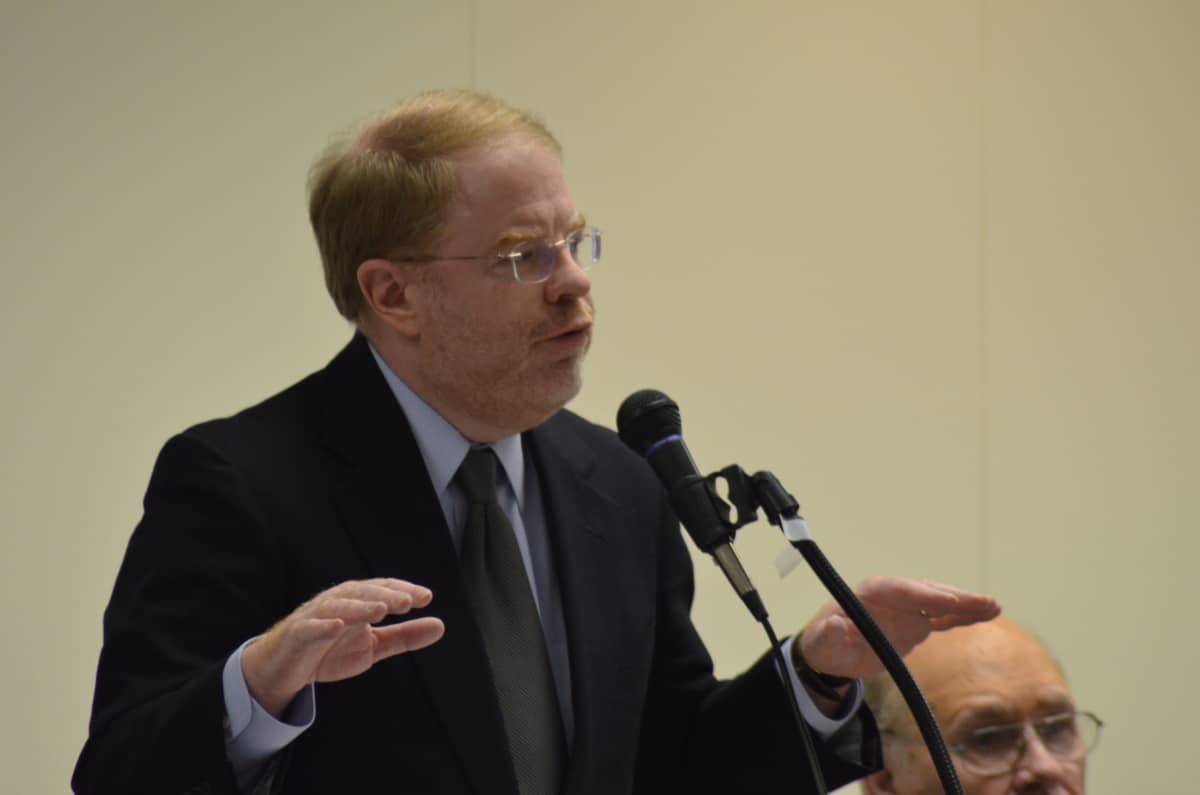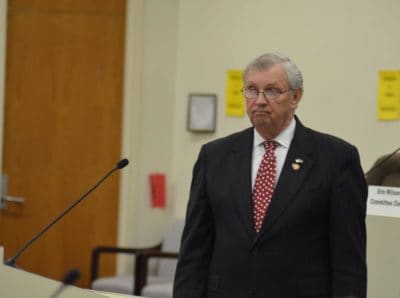

Community college system president Peter Hans told lawmakers this morning that for the good of North Carolina, he is asking the General Assembly to increase its investment in short-term workforce training programs at community colleges.
He asked them for an additional $11.5 million on top of the $6.4 million recurring dollars they budgeted during the short session so that the funding level for this program would reach “parity” with the curriculum programs offered by community colleges.
“This is about being strategic with the state’s future,” he said.
This was just one of the legislative priorities Hans and presidents of community colleges from across North Carolina shared with a joint education appropriations committee meeting this morning.
The committee is hearing today and tomorrow from education leaders about their budget priorities ahead of the legislative push for budget plans from the two chambers of the General Assembly.
Short-term workforce training is at the top of Hans’ agenda because it has only been funded at two-thirds the level of traditional academic training. Meanwhile the state is experiencing a significant skills gap, with many companies clamoring for more trained workers to fill open positions.
Other priorities shared include better funding for Information Technology at the state’s community colleges. The Community College System is asking for $15 million to upgrade workforce development-focused information technology systems that serve its 58 community colleges. Hans called up David Shockley, president of Surry Community College and president of the North Carolina Association of Community College Presidents, to explain the issue.
“When you look at the Community College Information Technology system, it’s basically a 20, 25 year old system,” he told the lawmakers.
He explained that he was actually an IT manager when the community college IT system was built. It was state-of-the art back then, but that was a time when a college’s computer lab might only have one computer hooked up to the Internet.
“Our computer systems have not been able to keep up at the community college with the demands that are existing,” he said.
For some students in continuing education and short-term workforce training, that means not having the ability to log in, register, and pay online.
“Here we are in 2019 and you can’t pay online,” Shockley said.
Other priorities discussed were an expansion of the career coach program — which puts these coaches in highs schools around the state — more money for workforce-focused campuses, better pay for faculty, and eliminating barriers to enrollment.
On better pay, Hans told the lawmakers that while he is “thrilled” for what the state has done to raise pay for public school teachers and university faculty, community college faculty salaries are 41st in the nation and 28 percent below the national average.
Meanwhile, the community college system has had extensive conversation around simplifying residency determinations for community college students, which is seen as a barrier to enrollment for many.
Read our series on residency determination here.
Read our legislative preview with a section on the community college legislative priorities here.
Read the Governor’s budget proposal here.
House school construction bond bill
The full House took up and passed a school construction bond bill from House Speaker Tim Moore, R-Cleveland, today. The House has to vote one more time on a separate day before the legislation officially passes the House. From there it will go on to the Senate.
The bill would put before voters the option to pass a bond that would include $1.5 billion for K-12 schools, and about $200 million each for the UNC System and Community College System. It would be used for construction and infrastructure needs in the various systems.
The Senate has already passed a competing bill that would use money from the State Capital and Infrastructure Fund to raise money for school construction over the next 10 years. The SCIF gets 4 percent of state revenue to take care of the state’s debt and for capital projects for state government and the UNC System. The Senate bill proposes increasing the share of state revenue that goes to that fund to 4.5 percent, and then splitting the funds evenly between the K-12, UNC, and Community College System for a total of about $2.03 billion each. That bill heads to the House for consideration next.


